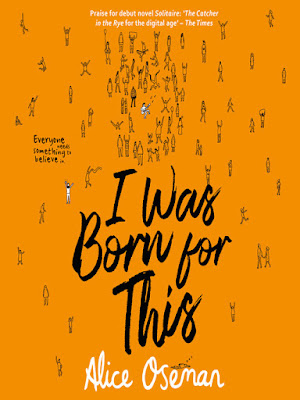Book Review: Peter Pan by J.M. Barrie
Peter Pan
by J.M. Barrie
(finished reading: 20/10/20)
4/5 stars
“She was a lovely lady, with a romantic mind and such a
sweet mocking mouth. Her romantic mind was like the tiny boxes, one within the
other, that come from the puzzling East, however many you discover there is
always one more; and her sweet mocking mouth had one kiss on it that Wendy
could never get, though there it was, perfectly conspicuous in the right-hand
corner.”
I’ve always loved the story of Peter Pan. Neverland, like
Hogwarts or Narnia, has always been a place I desired to live much more than
planet earth. And of course, the concept of never growing up is still the main
appeal. I decided to finally read the original J.M. Barrie story and it
surprised me in so many ways!
Firstly, the writing is so wonderfully whimsical and playful
and contains many more obscurities than any adaptation I’ve seen! The language
is very poetic and lyrical and certainly stretches the imagination further than
I thought it would. At times I found it a little difficult to follow and it
took a lot concentration. The edition I read did add notes explaining some of
the old vocabulary and phrases which was actually really helpful! But I
definitely think if I’d read this as a child I would have very quickly lost
interest.
Which leads me onto my main revelation. Peter Pan is always
sold as a story for children because the story we know starts and ends with
Wendy, John and Michael leaving and returning through the window of the nursery.
However, the original story focuses so much more on Mr and Mrs Darling as well
as Wendy as an adult. For this reason, I truly believe Peter Pan is a story for
adults. Like Mrs Darling, we all have that kiss in the corner of our lips, clinging
onto childhood by its fingertips. JM Barrie’s Peter Pan is a story for mothers and
their daughters who become mothers. I’m sure many professors of literature have
written entire books on this idea of what Peter represents for Mrs Darling and
then later to adult-Wendy. But to me, Peter is their childhood imagination that
comes and go. They nearly forget, but then he returns to them years later (often
once they have their own children) reminding them how to fly and how to be a
child once again. I think this surprised me because growing up Peter Pan had
always been a story primarily for children. But after reading the book, the
idea in my head has bloomed into something entirely different.
Additionally, the book contains much more complexity about
good and evil than any fairy tale has every taught me. Captain Hook, so
frequently presented as the cold hearted villain deserving of death, is in fact
presented as a lonely reject himself. The children in the book do not know
this, but Barrie tells Hook’s tale to the reader directly. Again, this just
solidifies the idea that Peter Pan is in fact a story for adults. I suppose if
Hook is Peter’s enemy, he therefore represents adult’s fear that adult life
infects their imagination. Peter is the child within adults that clings to
childhood and rejects grown-up responsibilities. Similarly, Hook is an adult
who successfully fled adult life and retreated to Neverland, only to be
rejected by the children because he is no longer pure like the children but
instead the threat of adulthood. We all want to be Peter, but in fact we are
Hook. This made the story a whole lot sadder than I predicted! But also so much
more clever and nuanced than I ever fully understood. It really made me
appreciate the genius of JM Barrie.
I have to bring up the points that made me cringe, namely,
the racism and sexism and gender roles emphasised throughout. I fully
appreciate that the book is a reflection of the time it was written and
obviously read it with the wisdom regarding prejudice in mind. However, it
struck me how unfamiliar with reading this sort of content I am! I have become
so used to reading diverse literature written by diverse authors. I think this
is just brought to light to me why it’s so important that we continue to read
diverse literature as well as the classics in order to fully understand the
problems of the past. Again, just reinforcing the idea that this is a book for readers
with awareness of these issues or for these readers to use to educate younger readers.
Overall, the book definitely surprised me in so many ways
despite the fact it is a story we all know so well from our childhoods. For this
reason, I highly recommend reading it as an adult because you will certainly
gain a new layer of insight about the themes!




Comments
Post a Comment